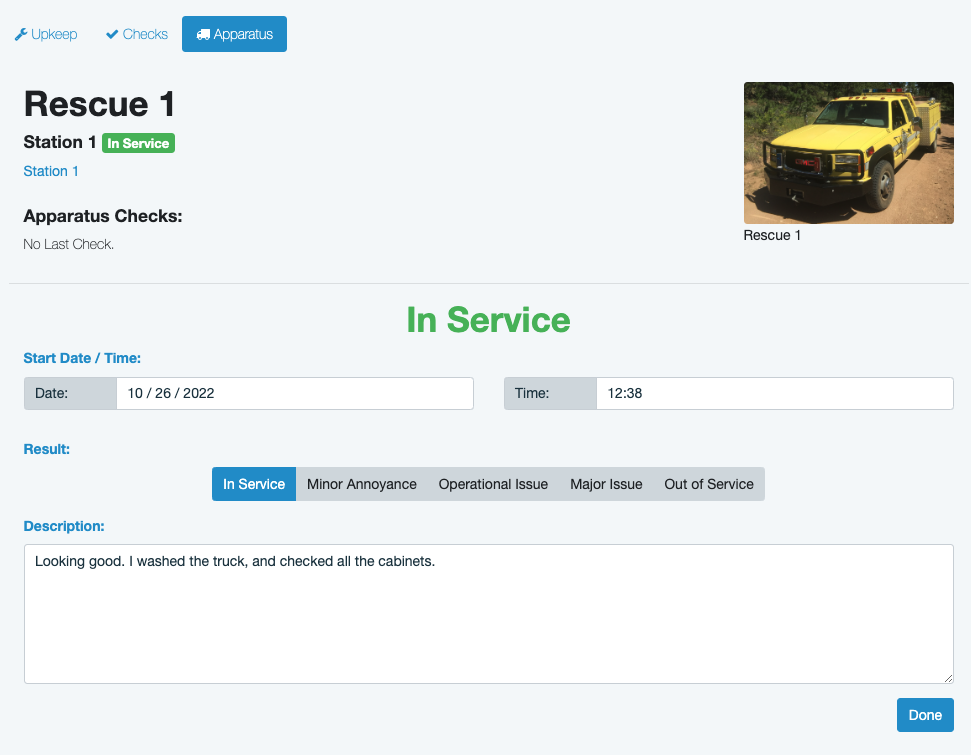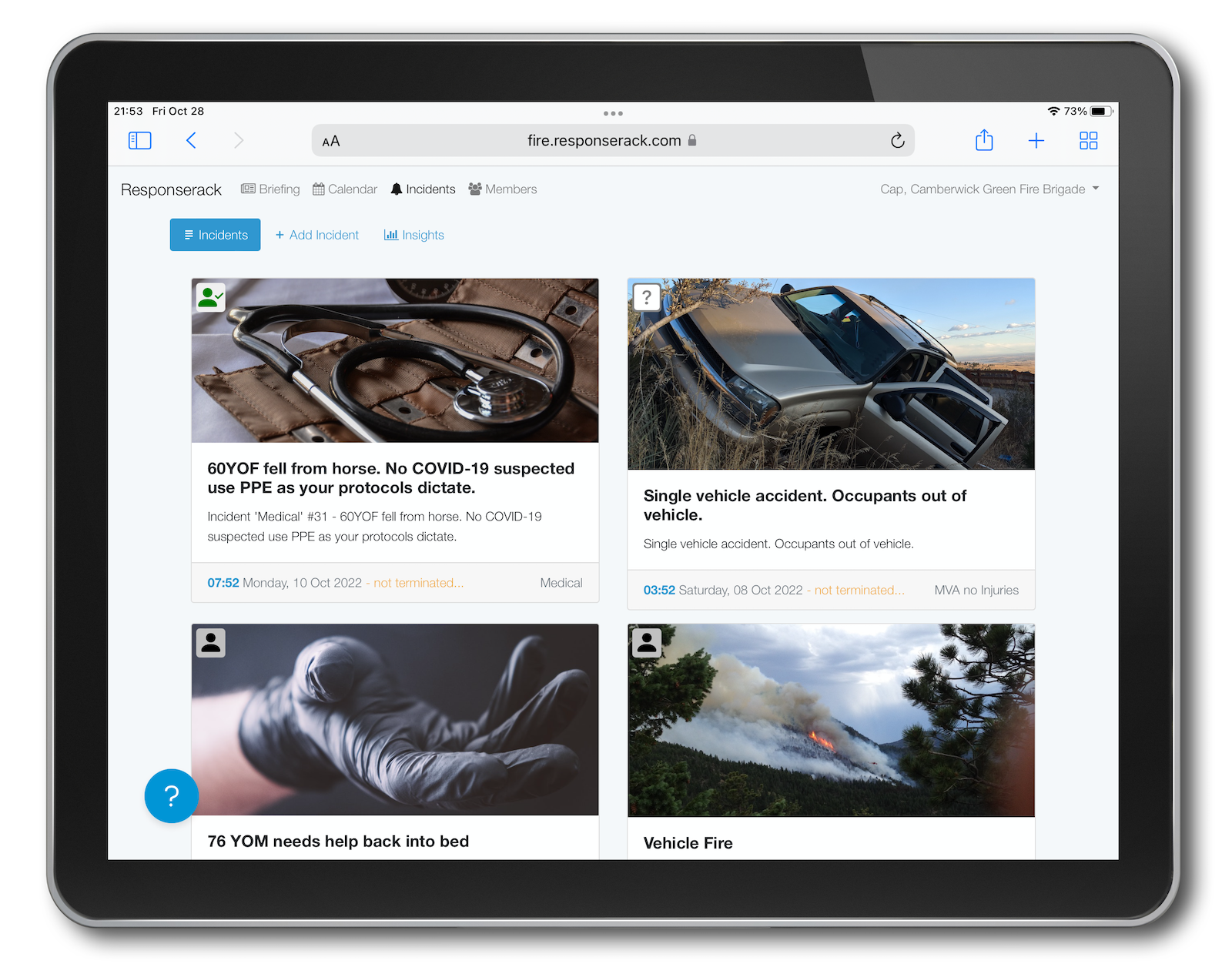Apparatus Truck Checks
Fleet Maintenance
As I talk to more fire departments about how they maintain their fleets, I come upon four distinct jobs to be done. Some departments will do the initial couple, and others (perhaps with larger fleets) might do more. I am looking for Responserack to keep it simple and allow you to operate at the level you can support with department resources, and also at a level you can sustain over time.
- 'Checks' … is it ok, does it have any operational issues, is it out of service? When was it last checked, and by whom?
- 'Maintenance records' … what was repaired or replaced? When done (e.g. mileage) and at what vendor?
- 'Scheduling' … when are pump tests due? When should we next budget for new tires?
- 'Planning / Budgeting' … what apparatus is next in line for maintenance? How much have we spent this year?
Checks
Keep track of apparatus checks, typically from a mobile device, and report any issues. This allows the key insights of what is fully operational right now, and what is not working? Attach photos of any problems. (Allow a fleet manager to mark issues as resolved.)
Key questions answered by ‘Checks’:
- What is out of service now?
- What needs to be fixed?
- Are key supplies missing?
- Are key components (e.g. AED) out of service, but the apparatus is still in service?

Apparatus Truck Check
Maintenance Records
Keep track of repairs done, and scheduled maintenance. Pump testing, pump service, changed transmission oil, tires rotated … keep track of as much or as little as you need. Record the invoice, the garage that did the repair (unless done in house), and the apparatus mileage it was done at.
Key questions answered by ‘Maintenance Records’:
- When did we last change the tires on Engine 1, and how much did they cost?
- When was the oil changed on Tender 2?
Scheduling
Keeping track of maintenance is valuable, however maintenance is ongoing every year, every cycle. An experienced fleet manager can look at maintenance records and know what is coming up, but explicitly setting schedules (annual, 3 months, etc.) allows Responserack to communicate that clearly.
Key questions answered by ‘Scheduling’:
- When are pump tests next due? Annually yes, but when?
- What maintenance checks are coming up, in case they can be added to a maintenance visit.
Maintenance Planning
Apparatus maintenance costs are a significant part of any volunteer fire departments budget. Knowing know much has been spent, and what remains available allows a fleet manager to budget accordingly, and perhaps include more preventative maintenance.
Key questions answered by ‘Maintenance Planning’:
- Which apparatus goes in next, and for what service items?
- How much have we spent from the maintenance budget this year?
Please contact me if you have more to teach me about fire department truck maintenance and apparatus checks. I’d appreciate hearing it.
See more information posts, about...
Responserack for Volunteer Fire Departments
Responserack provides services for volunteer fire departments; member information services, incident reporting, NFIRS and so much more.
